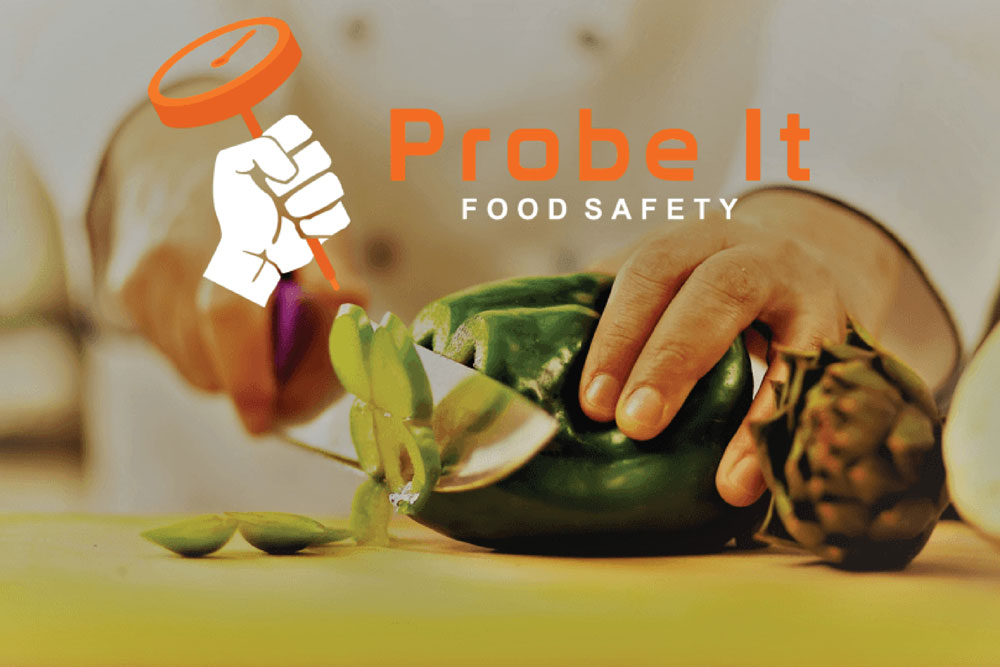Mandatory Food Handler Certification

The most effective method for preventing food borne illnesses is through food handler education, because many of illnesses are caused by mistakes made by food service workers. This is why many provincial governments and local municipalities have legislation that makes food handler certification mandatory.
In Alberta, the provincial food regulation requires:
” A person operating a commercial food establishment must, at any time when there are 5 or fewer food handlers working on the premises, ensure that at least one individual who has care and control of the commercial food establishment holds a certificate issued by the Minister confirming that individual’s successful completion of a food sanitation and hygiene training program or a document that the Minister considers equivalent to such a certificate.” Food Regulation 31, Sec 31(1)
Additionally the Alberta food regulation requires:
“A person operating a commercial food establishment must, at any time when there are 6 or more food handlers working on the premises, ensure that at least one member of the management or supervisory staff of the commercial food establishment holds a certificate or equivalent document referred to in subsection (1) and that that individual is present at the commercial food establishment at the time. ” Food Regulation 31, Sec 31(2)
In BC, the provincial food premise regulation requires:
“Every operator of a food service establishment must hold a certificate, issued by a health officer, for the successful completion of the food handler training program known as foodsafe or its equivalent.” BC Food Premise Regulation, Sec 10(1)
Additionally the BC food premise regulation requires:
“Every operator of a food service establishment must ensure that, while the operator is absent from the food service establishment, at least one employee present in the establishment holds the certificate referred to in subsection (1).” BC Food Premise Regulation, Sec 10(2)
In Ontario, food handler certification is legislated by the regional municipal government and not the provincial government, therefore mandatory food handler certification varies between local municipalities. Currently there are 7 municipalities that require mandatory food handler certification.
- City of Toronto
- York Region which includes (City of Vaughan, City of Markham, Town of Richmond Hill, Town of Newmarket, Town of Aurora, Township of King., Town of East Gwillimbury, Town of Georgina, and Town of Whitchurch-Shouffville
- Halton Region which includes City of Burlington, Town of Oakville, Town of Milton, and Town of Halton Hills.
- City of Peterborough
- City of Hamilton
- Niagara Region which includes St. Catharines, Niagara Falls, Niagara-on-the-Lake, Fort Erie, Grimsby, Lincoln, Pelham and Port Colborne
- Middlesex London Health Unit which includes the city of London and the Country of Middlesex
The general by law for those municipalities in Ontario who have mandatory food handler certification is:
” At least one (1) certified food handler is present at the commercial food premises at all times during its operation to supervise the manufacture, processing, preparation, storage, handling, display, distribution, transportation, service, sale, or offering for sale, of food at all times during operation.”
Additionally, the York Region food handler certification by law requires an operator/owner to possesses a food handler certificate.
Related Posts
3 Advantages of Food Safety Training
Food safety training is a crucial aspect of keeping your business afloat. There are many…
Read More >>3 Benefits of National Food Safety Training Program
Food establishments are held at a higher standard by the government, especially by national health…
Read More >>How You Can Apply for Food Safe Level 1
Are you looking for a way to obtain a Food Safe Level 1 online certification?…
Read More >>